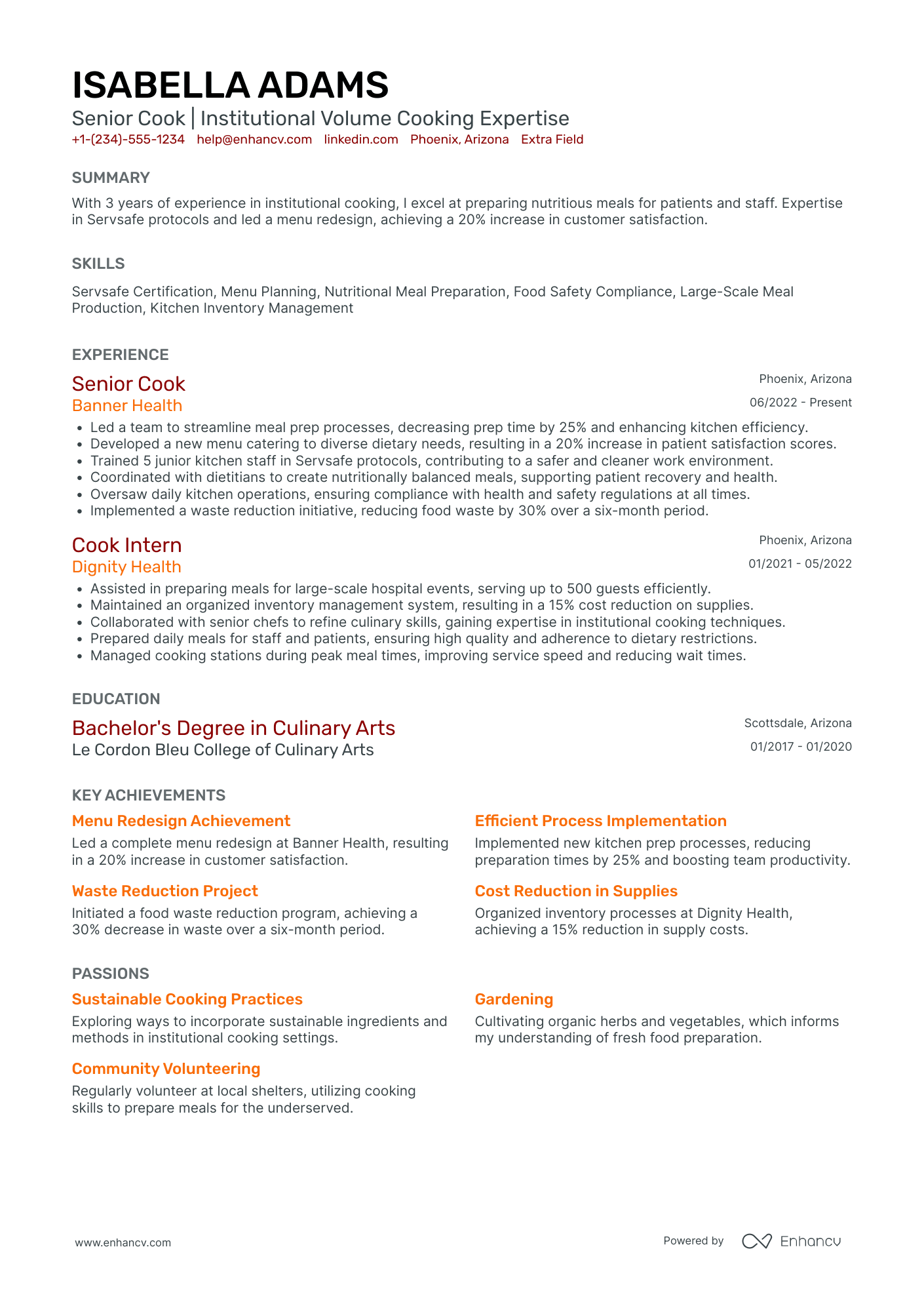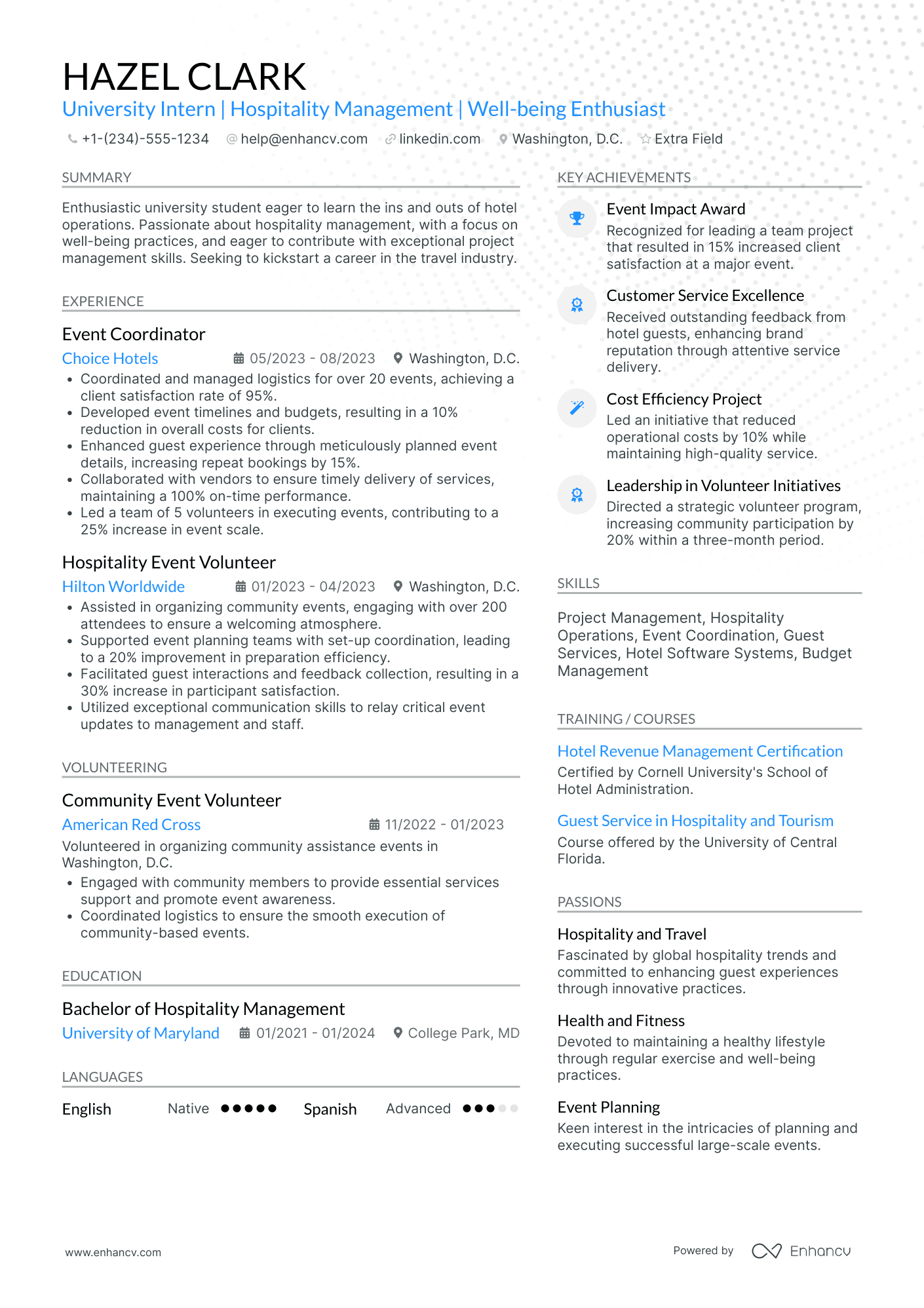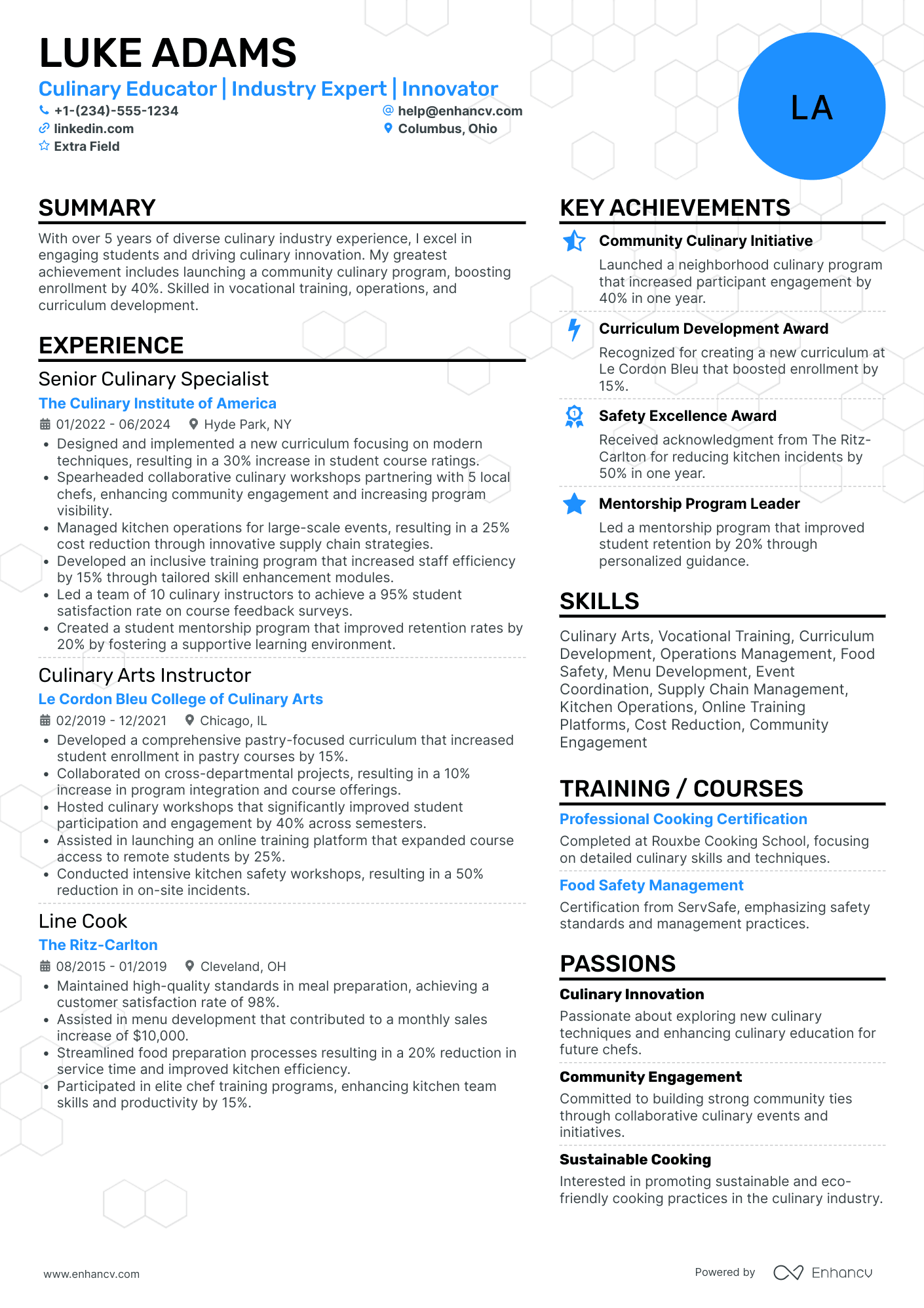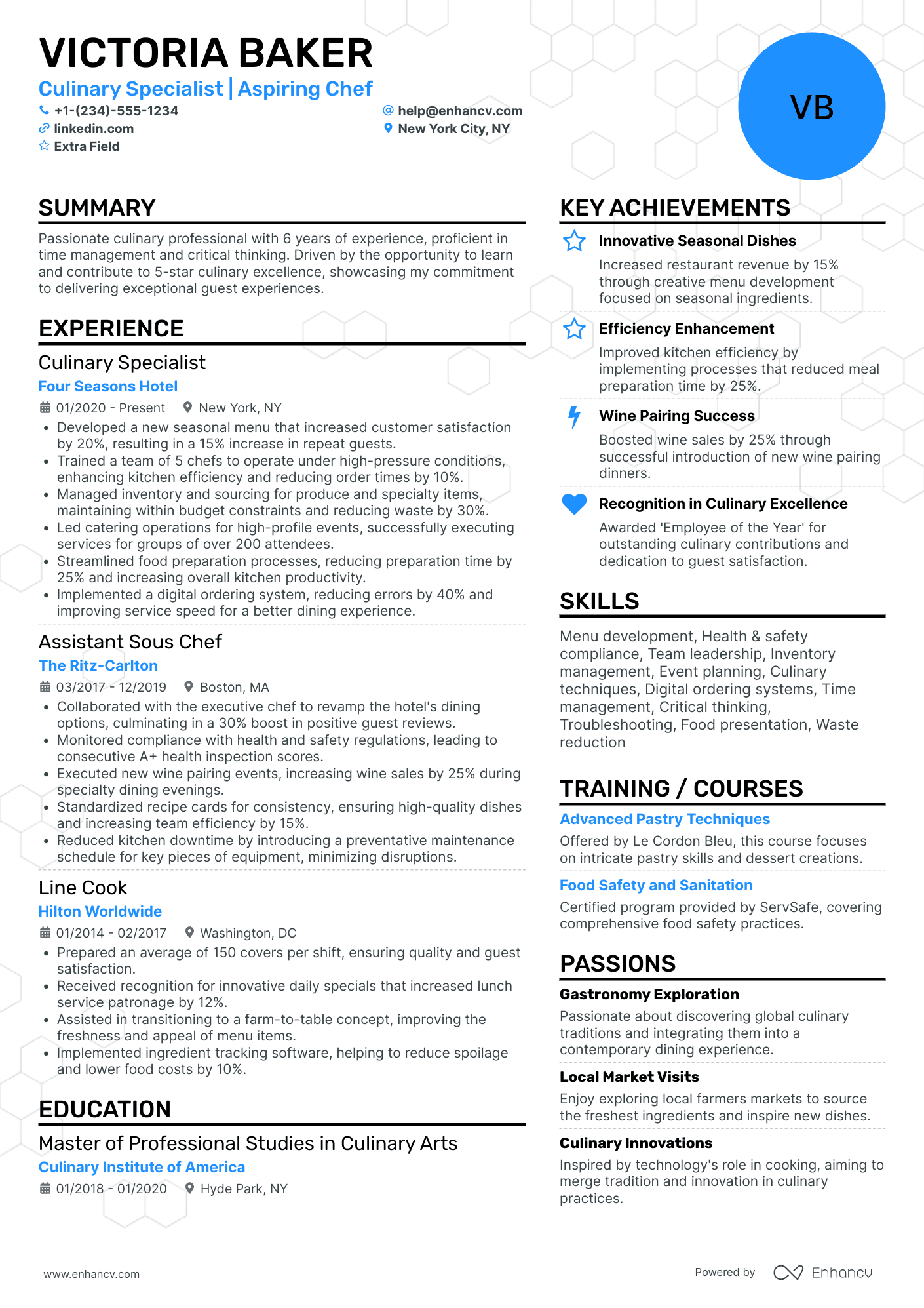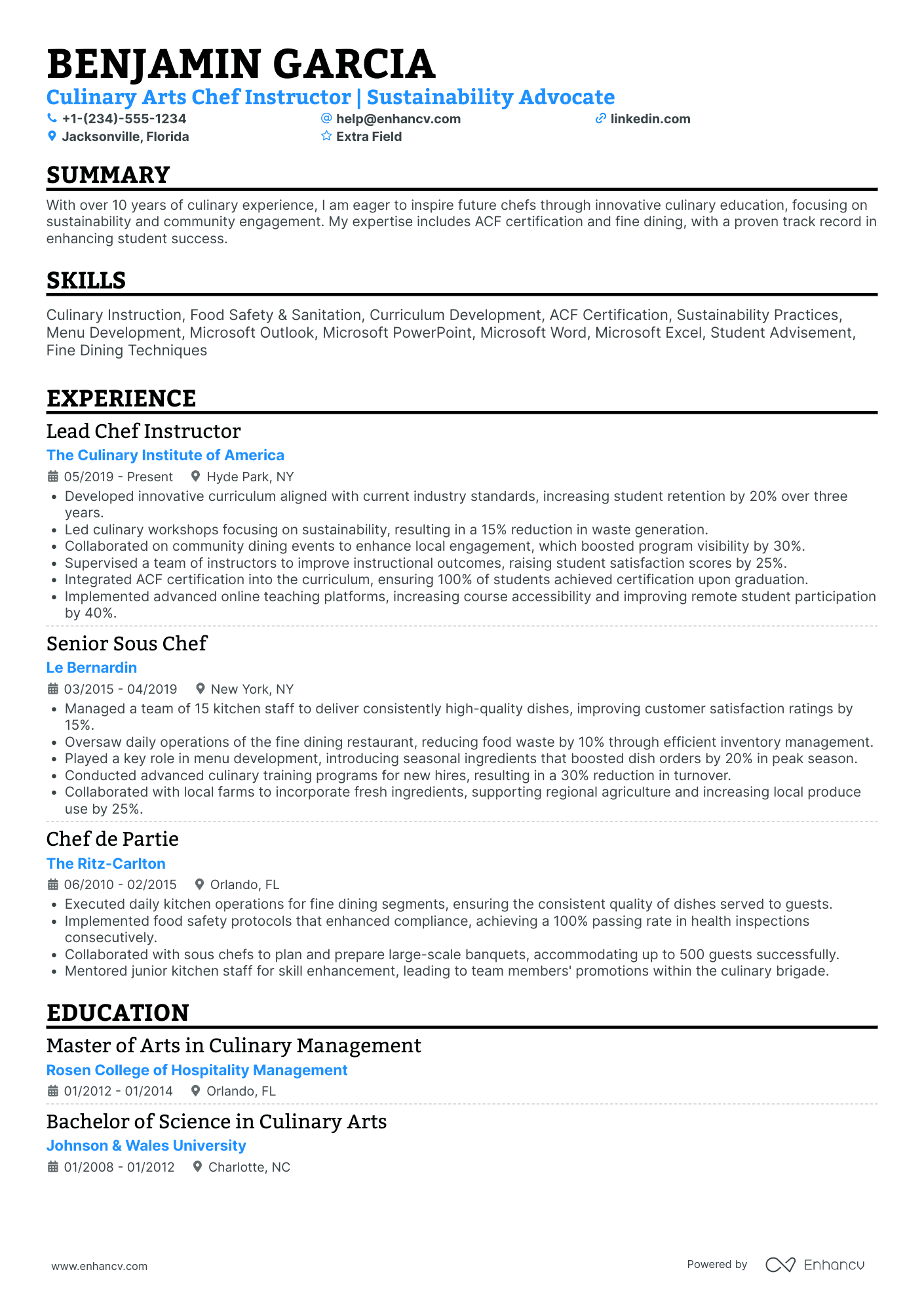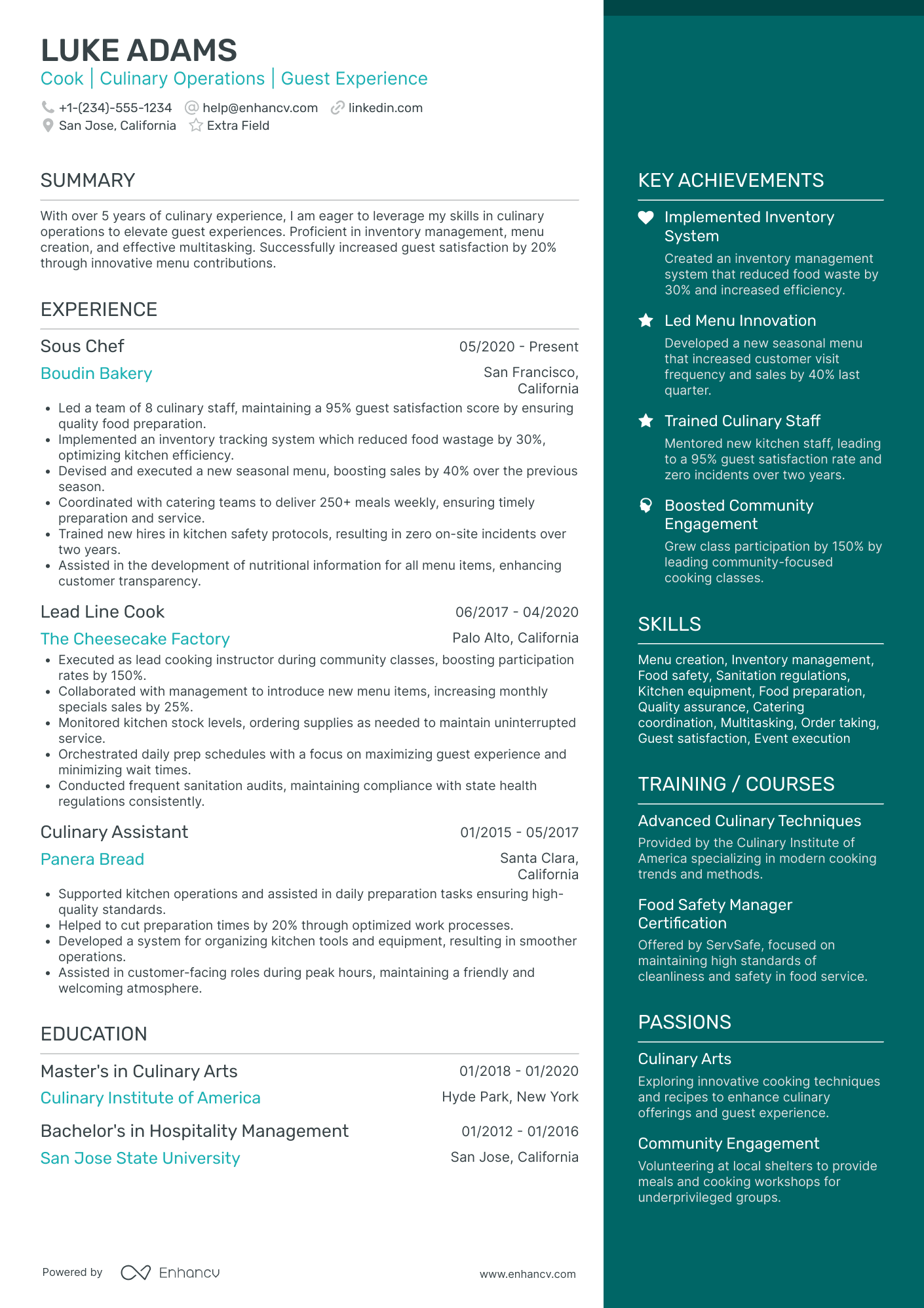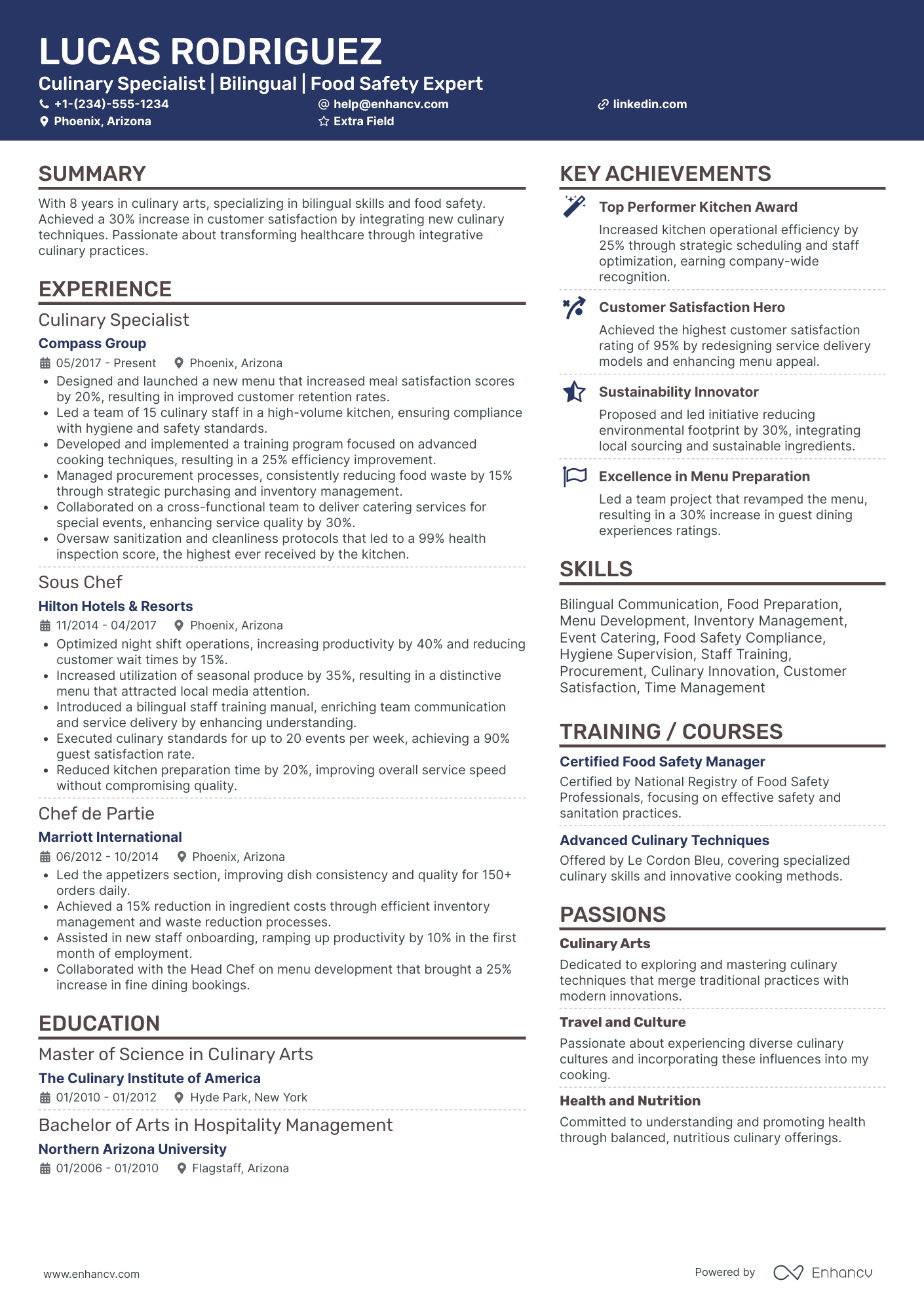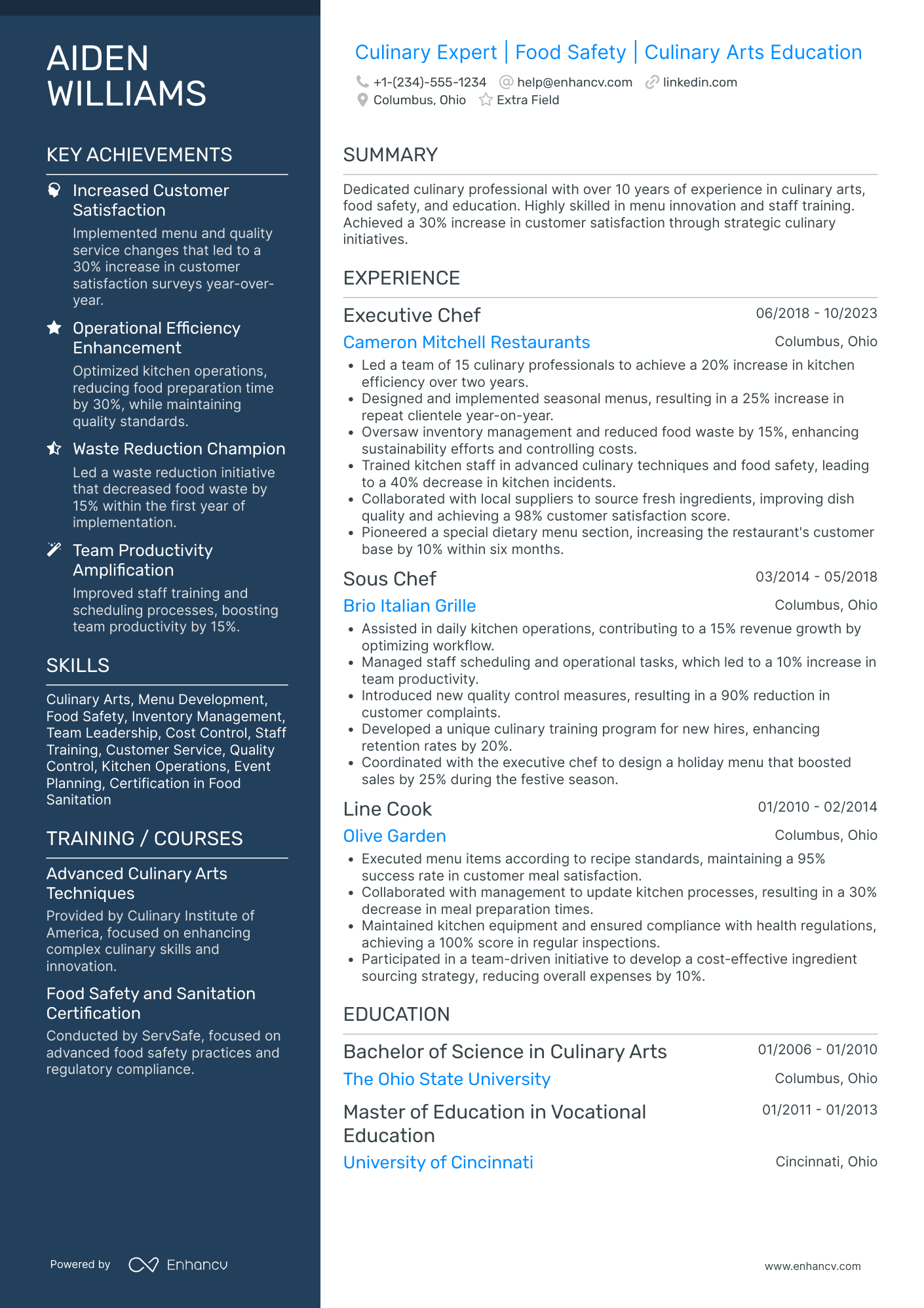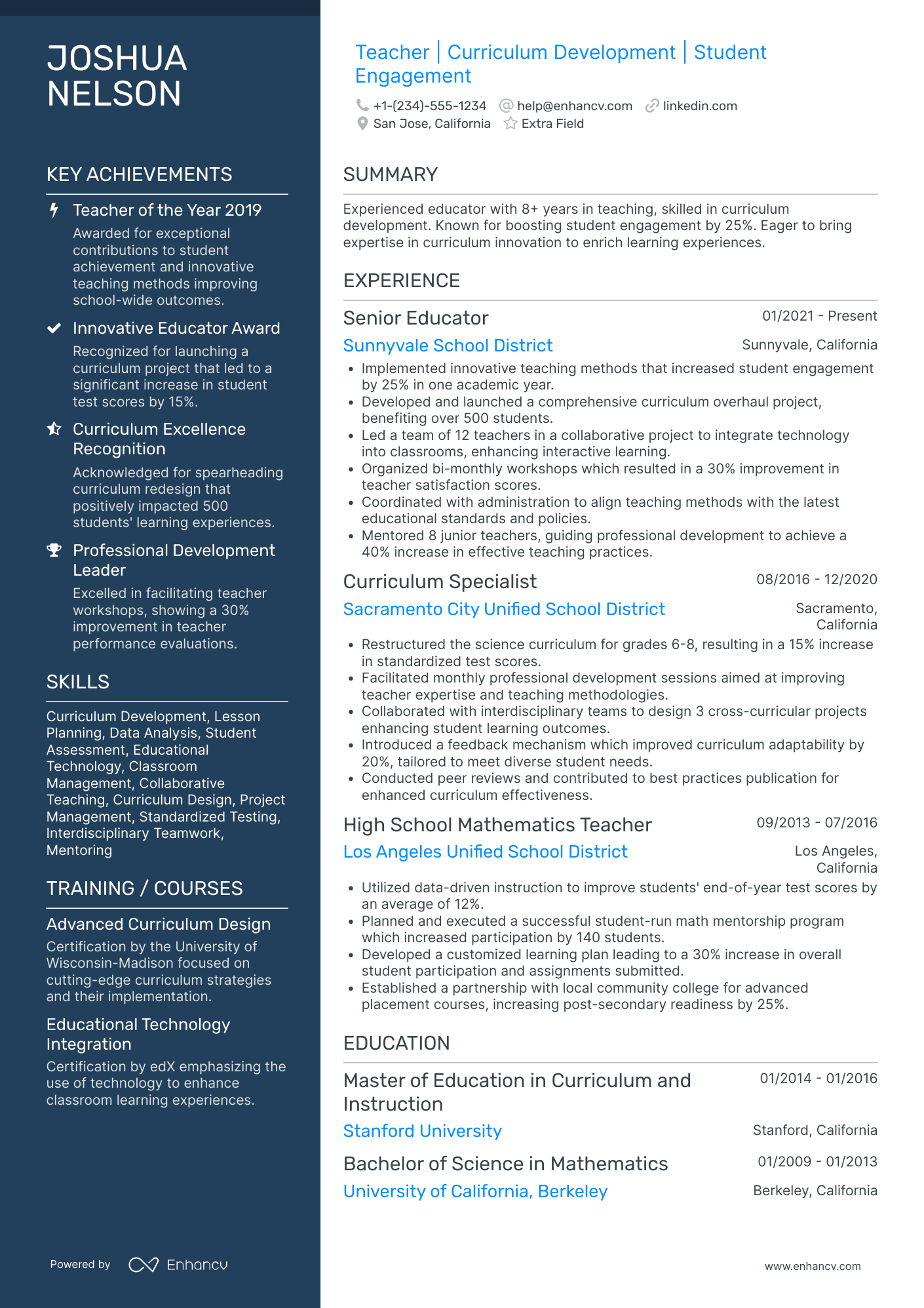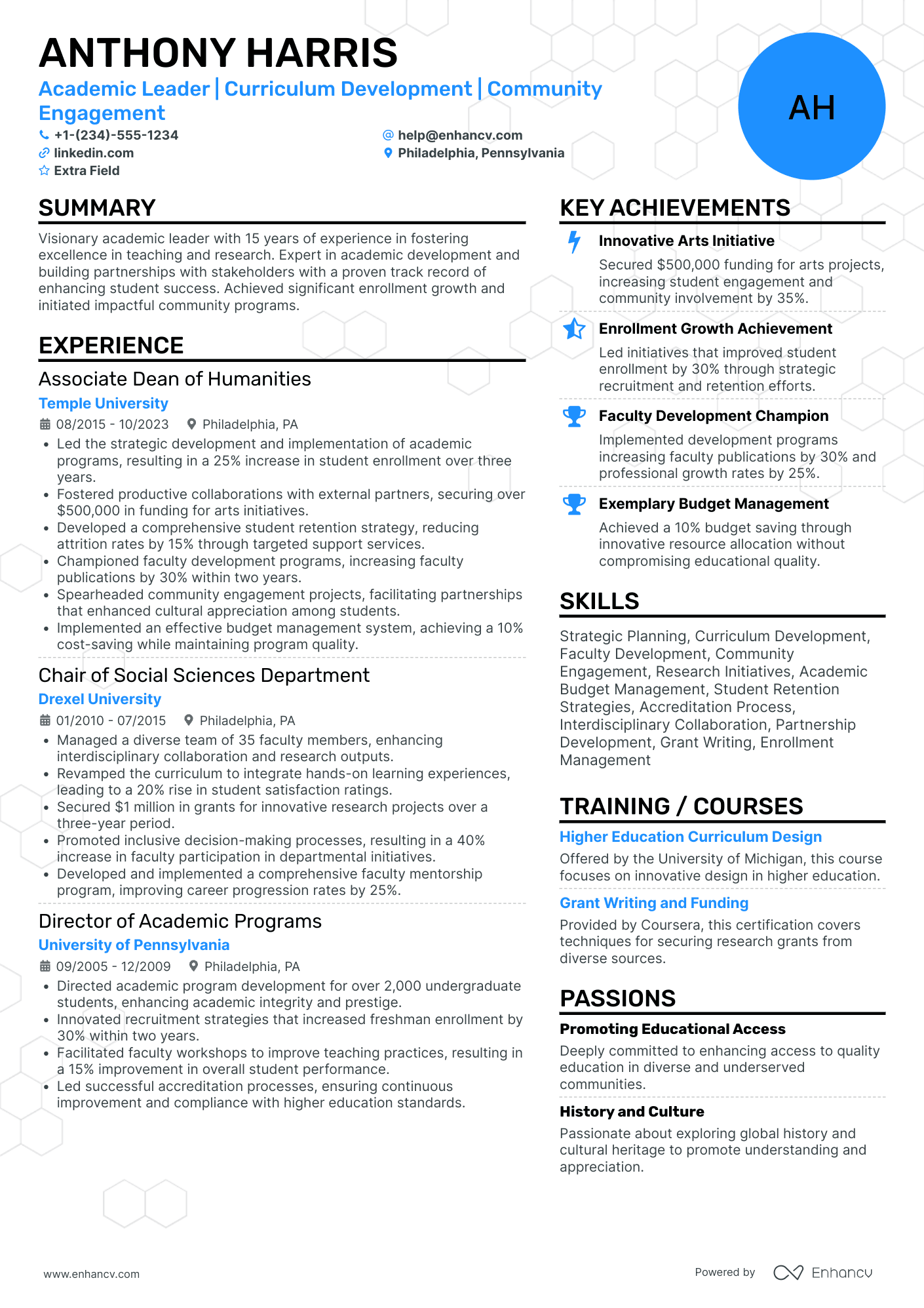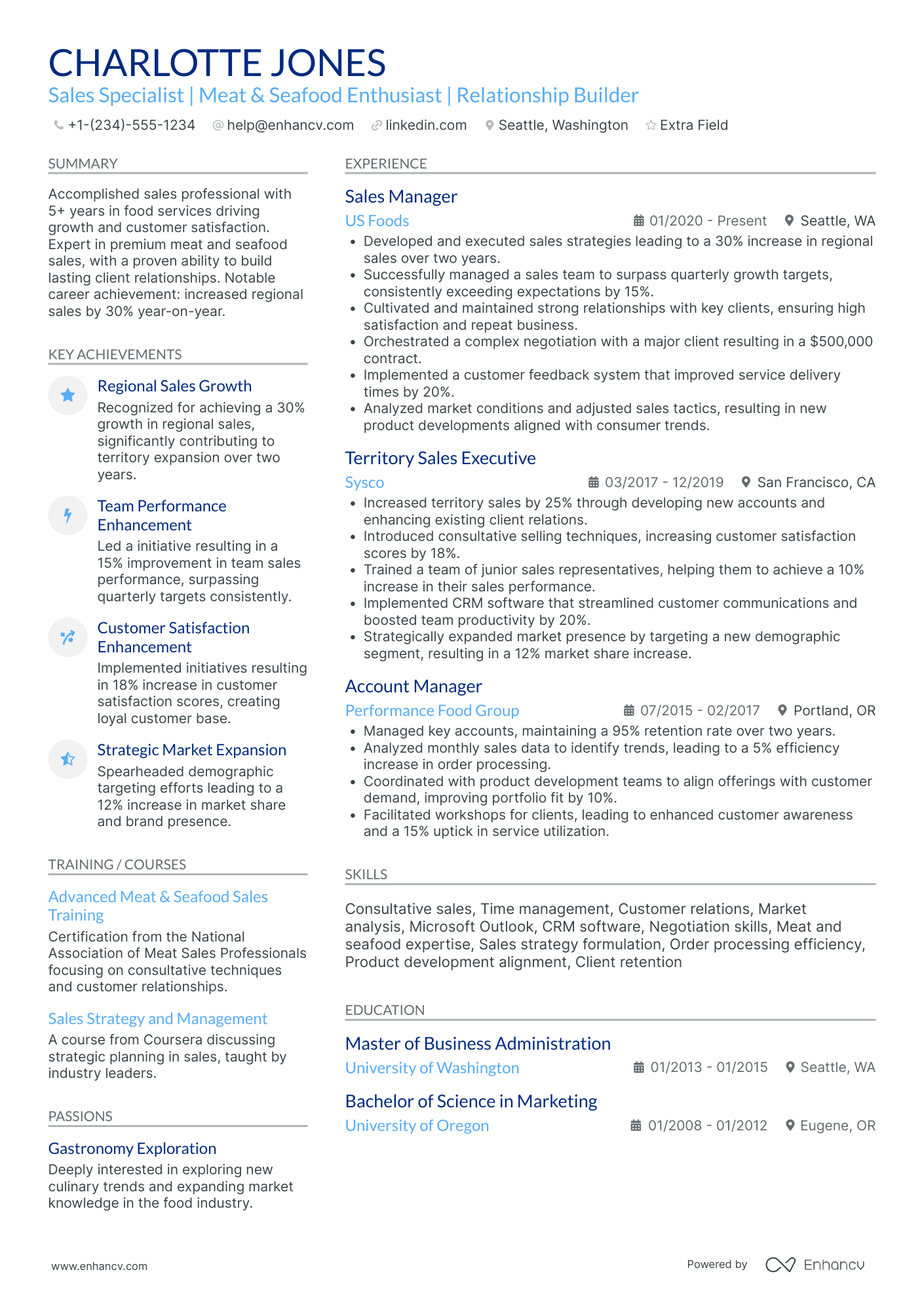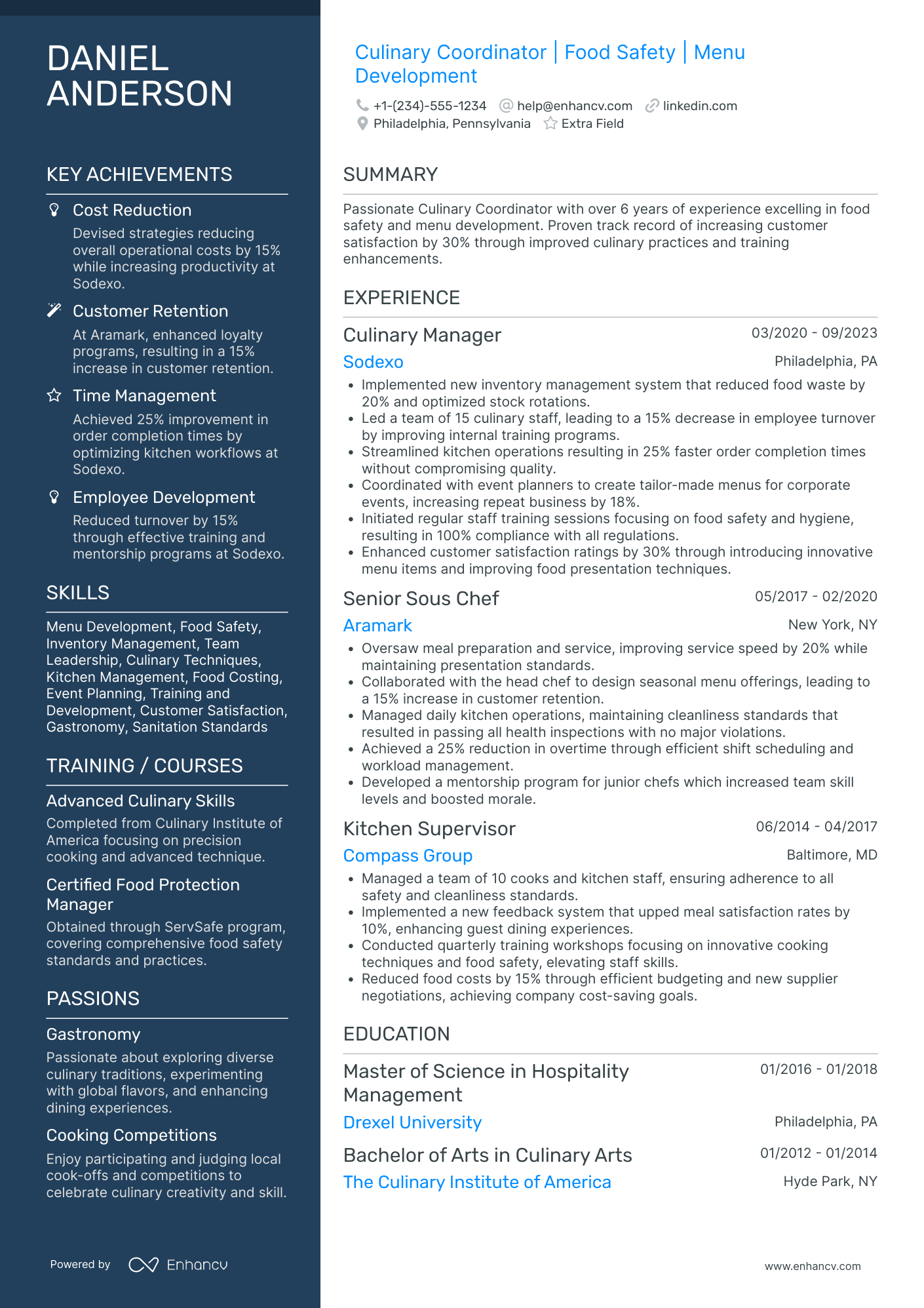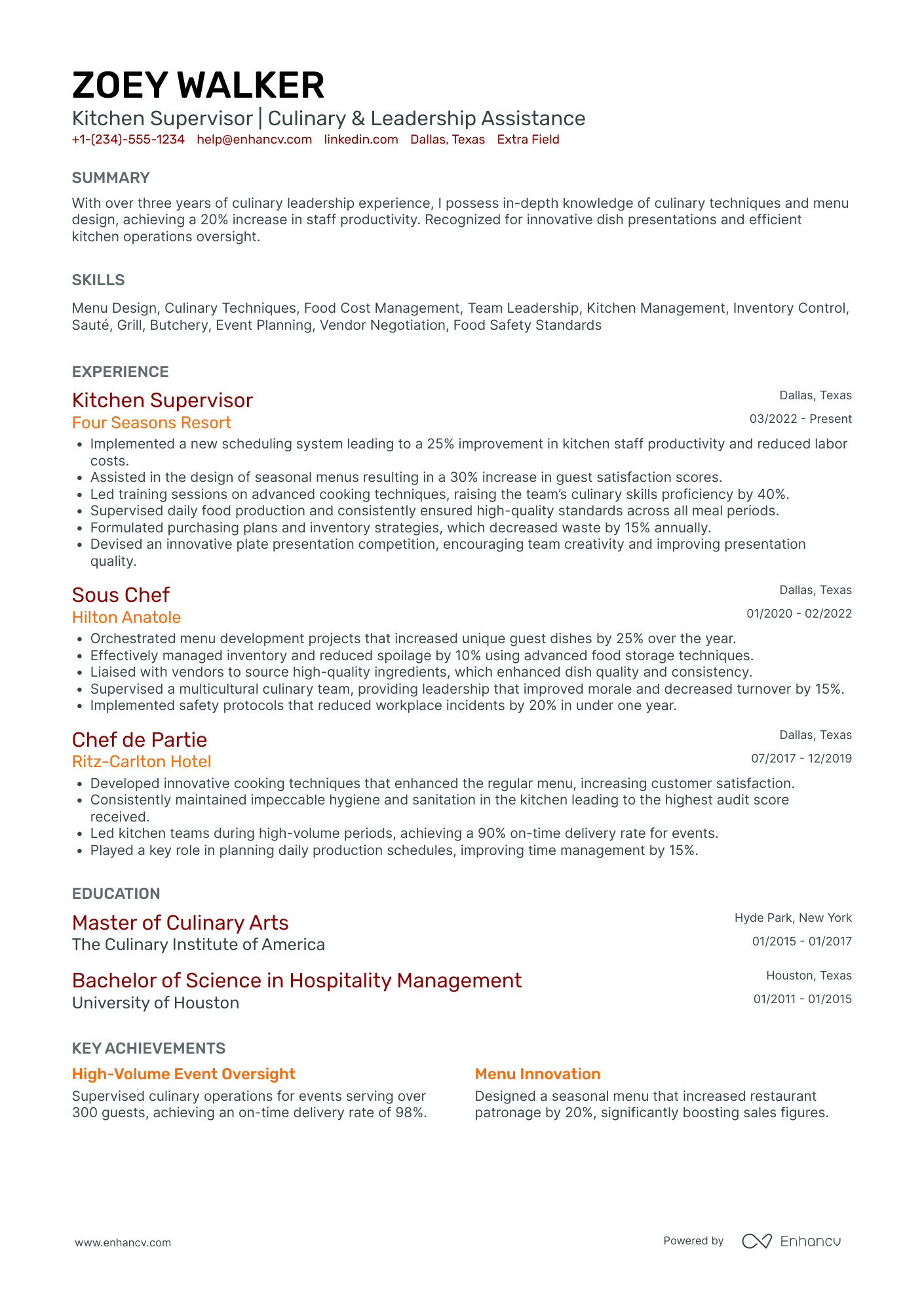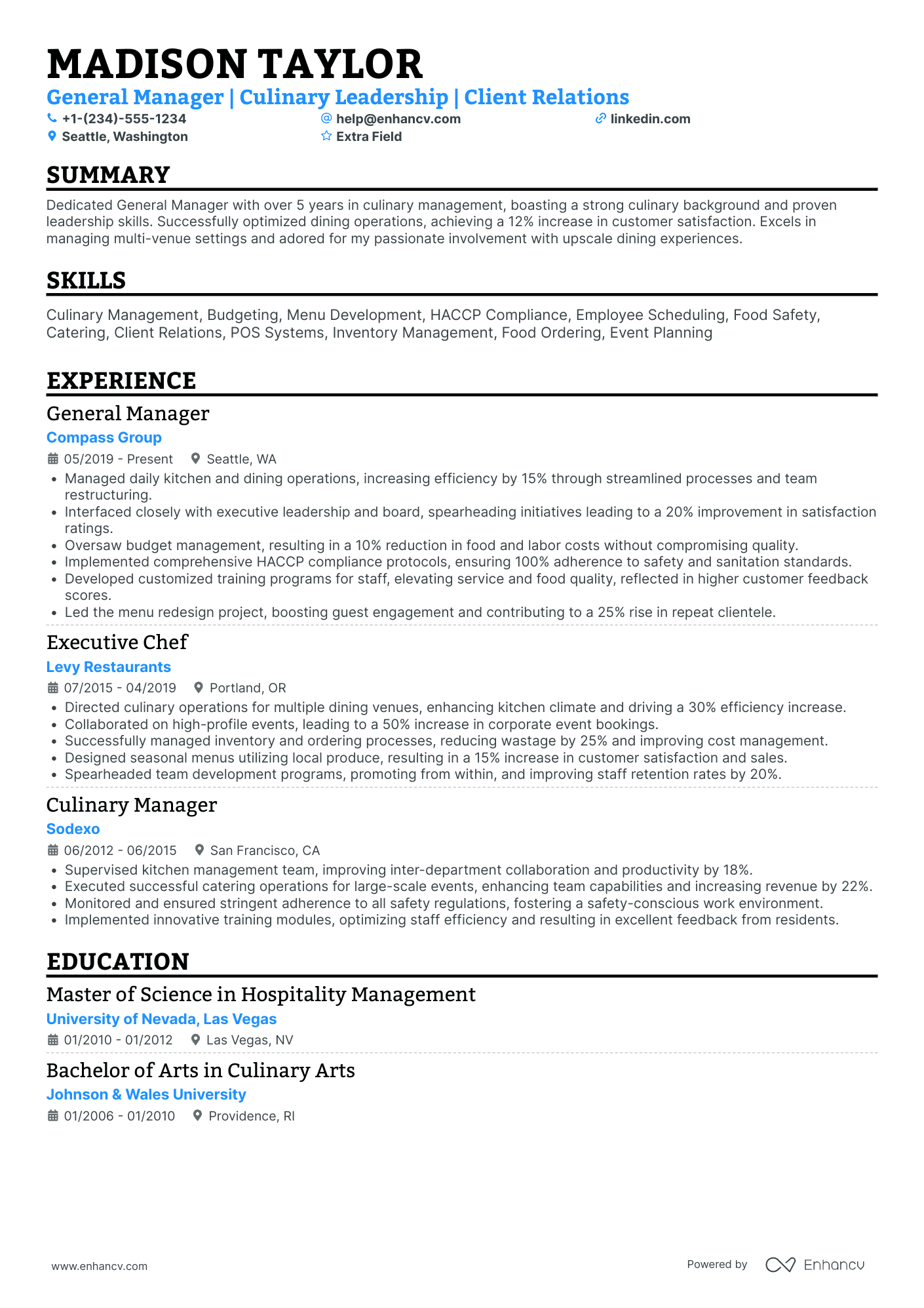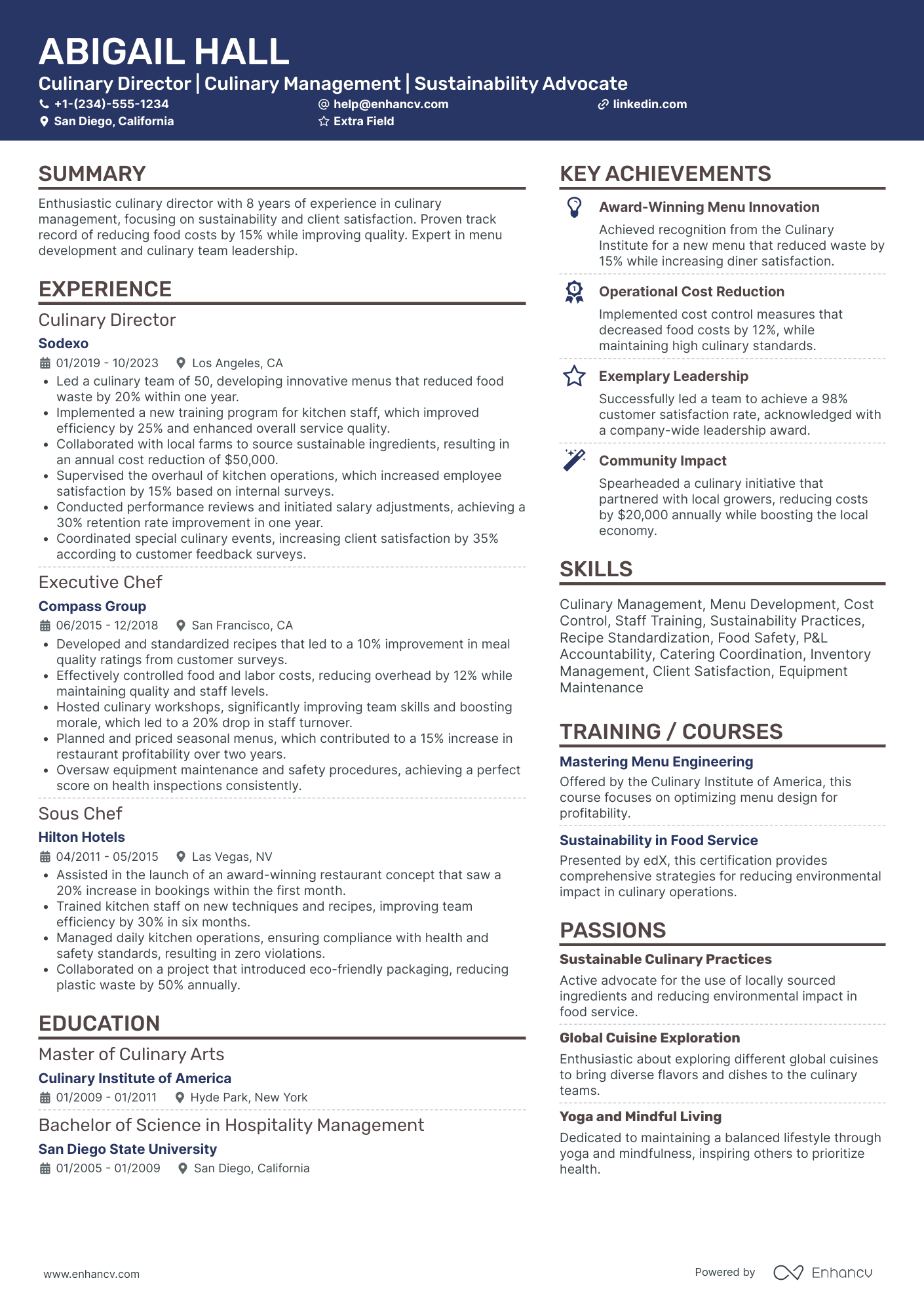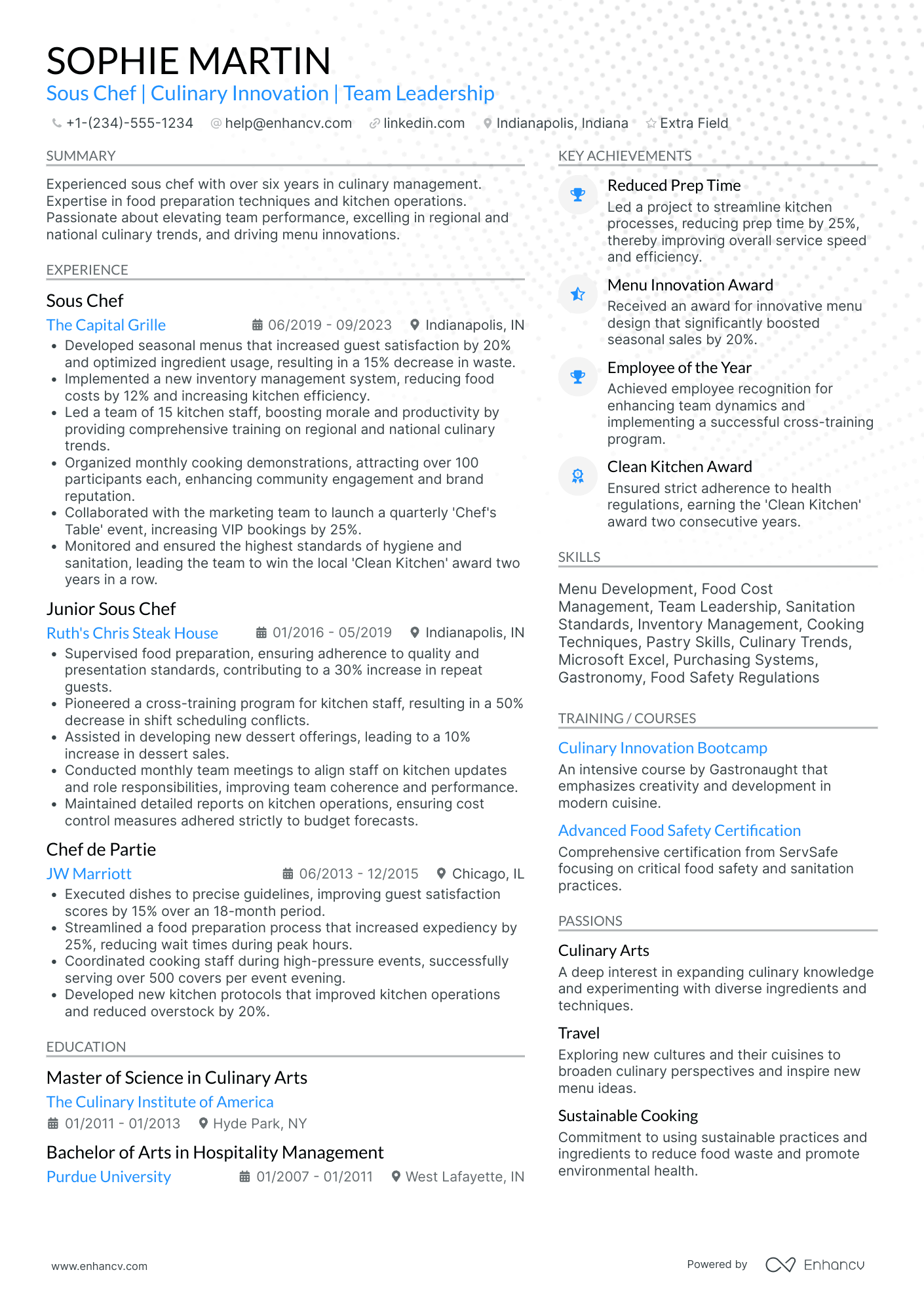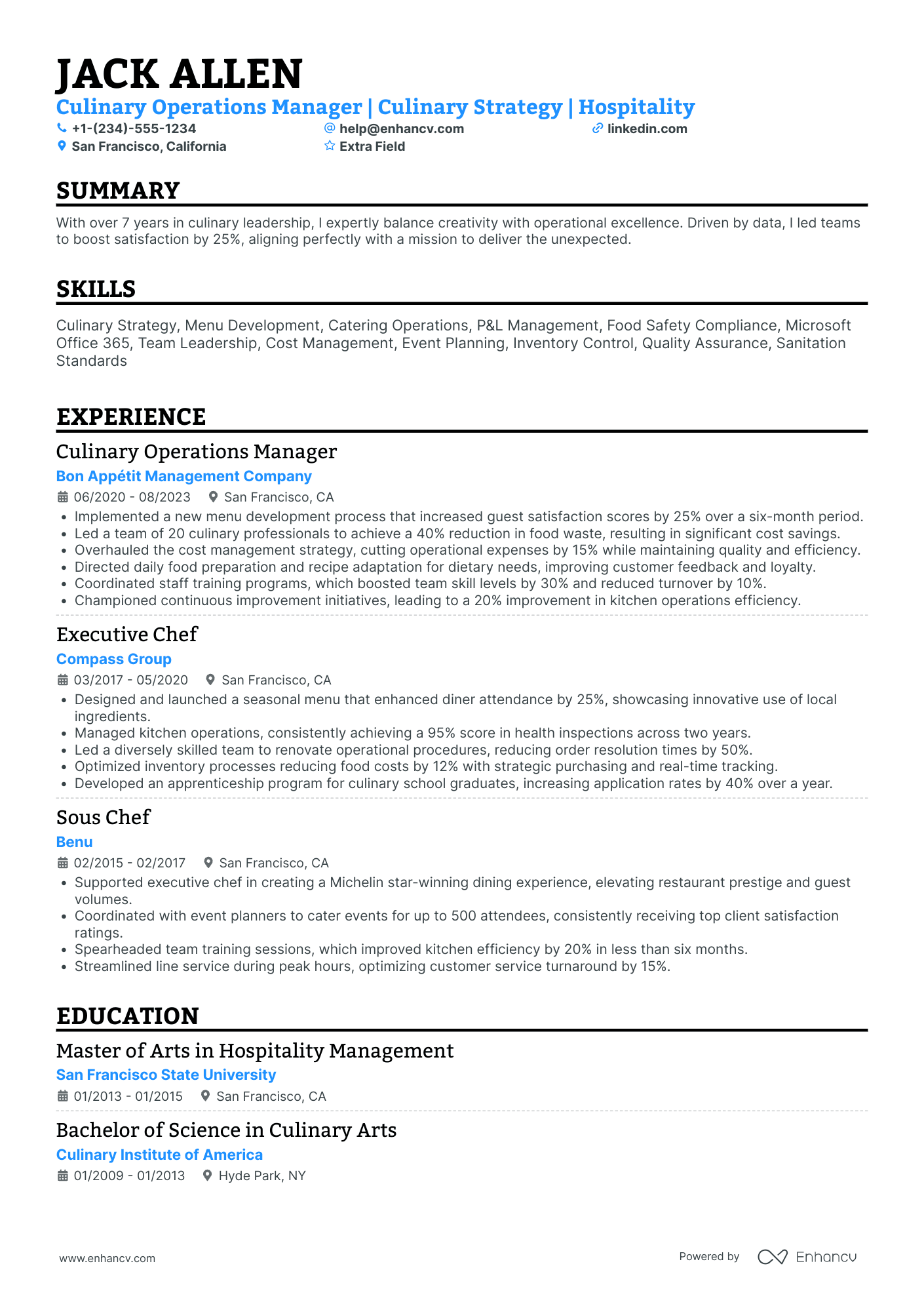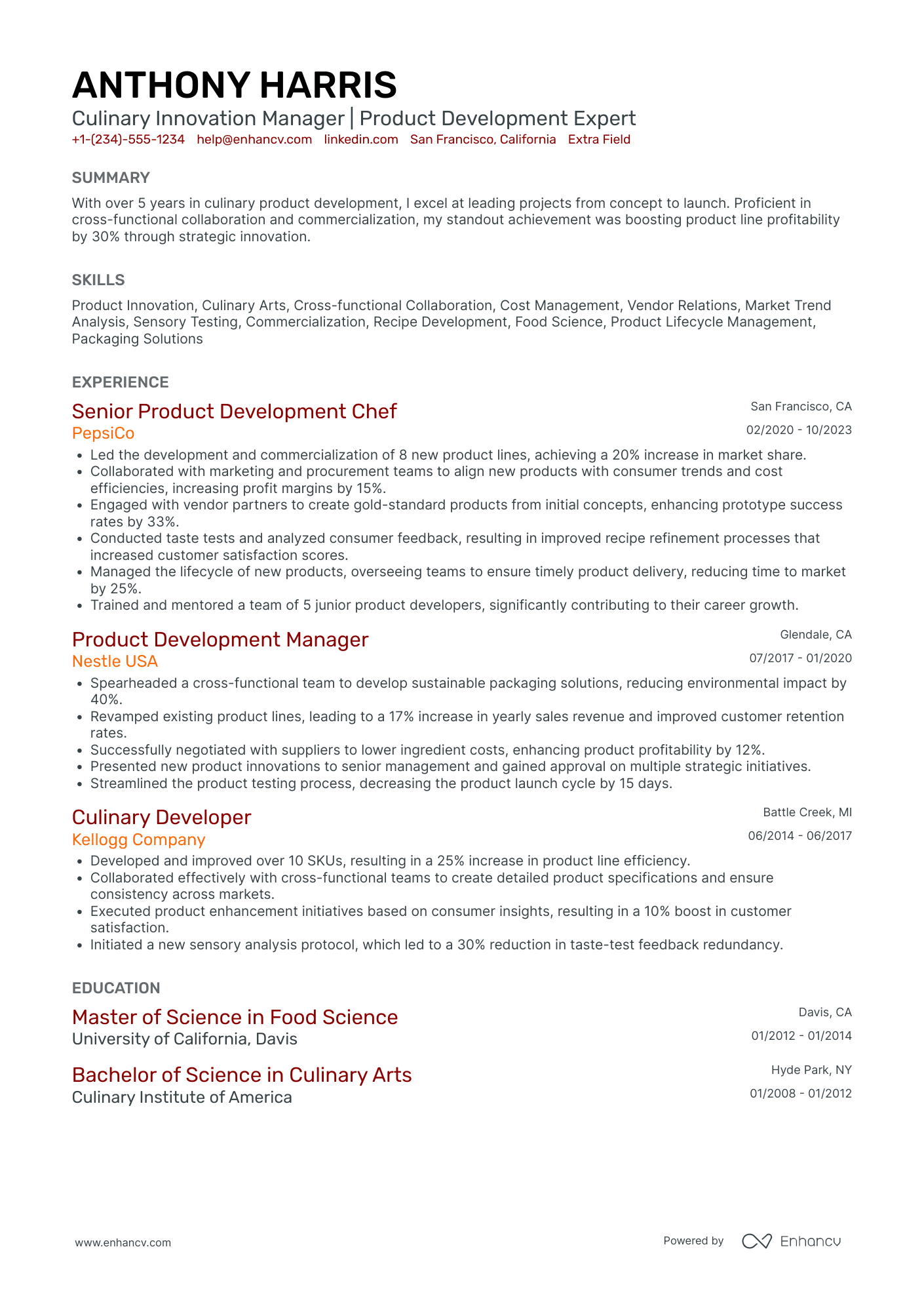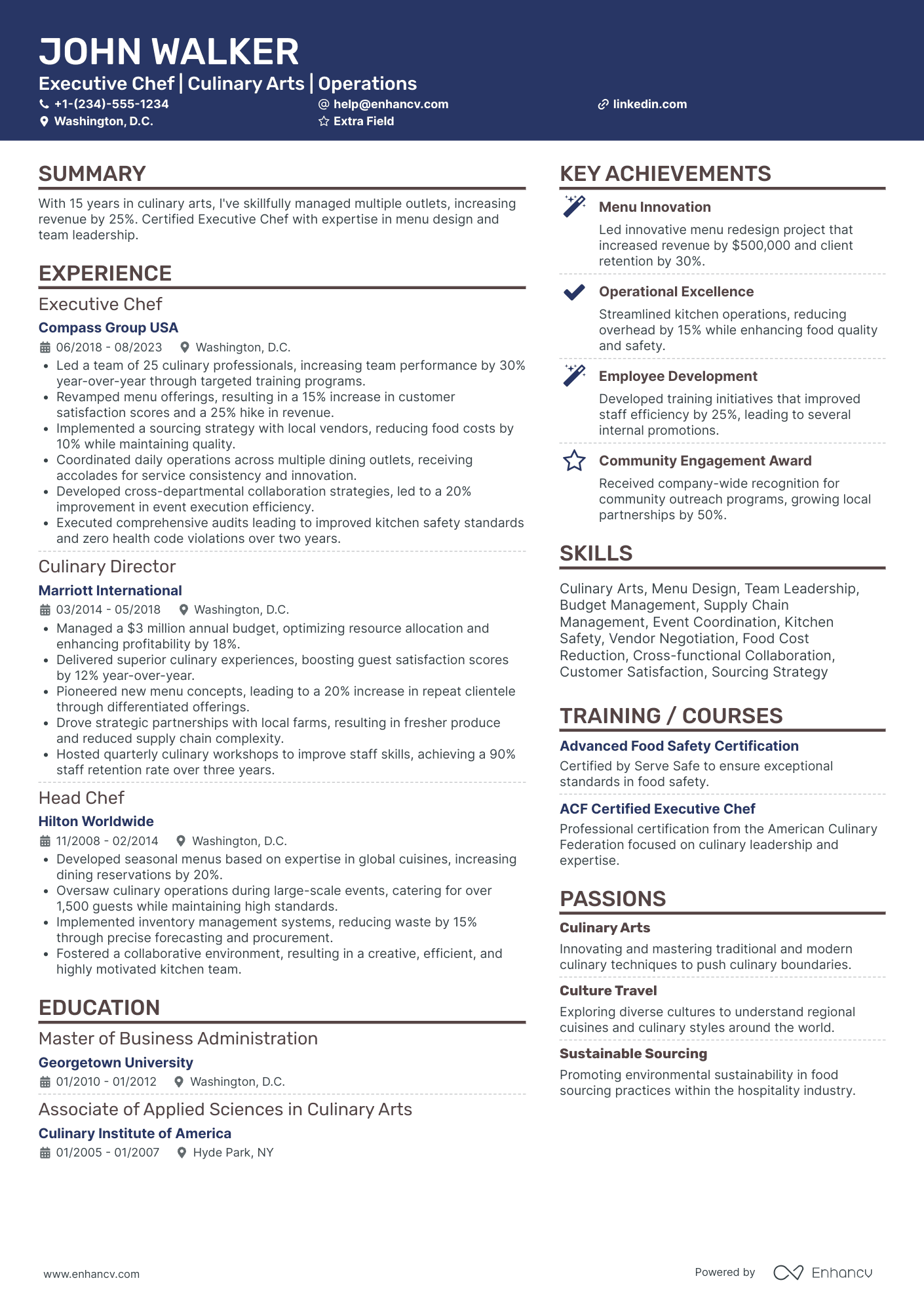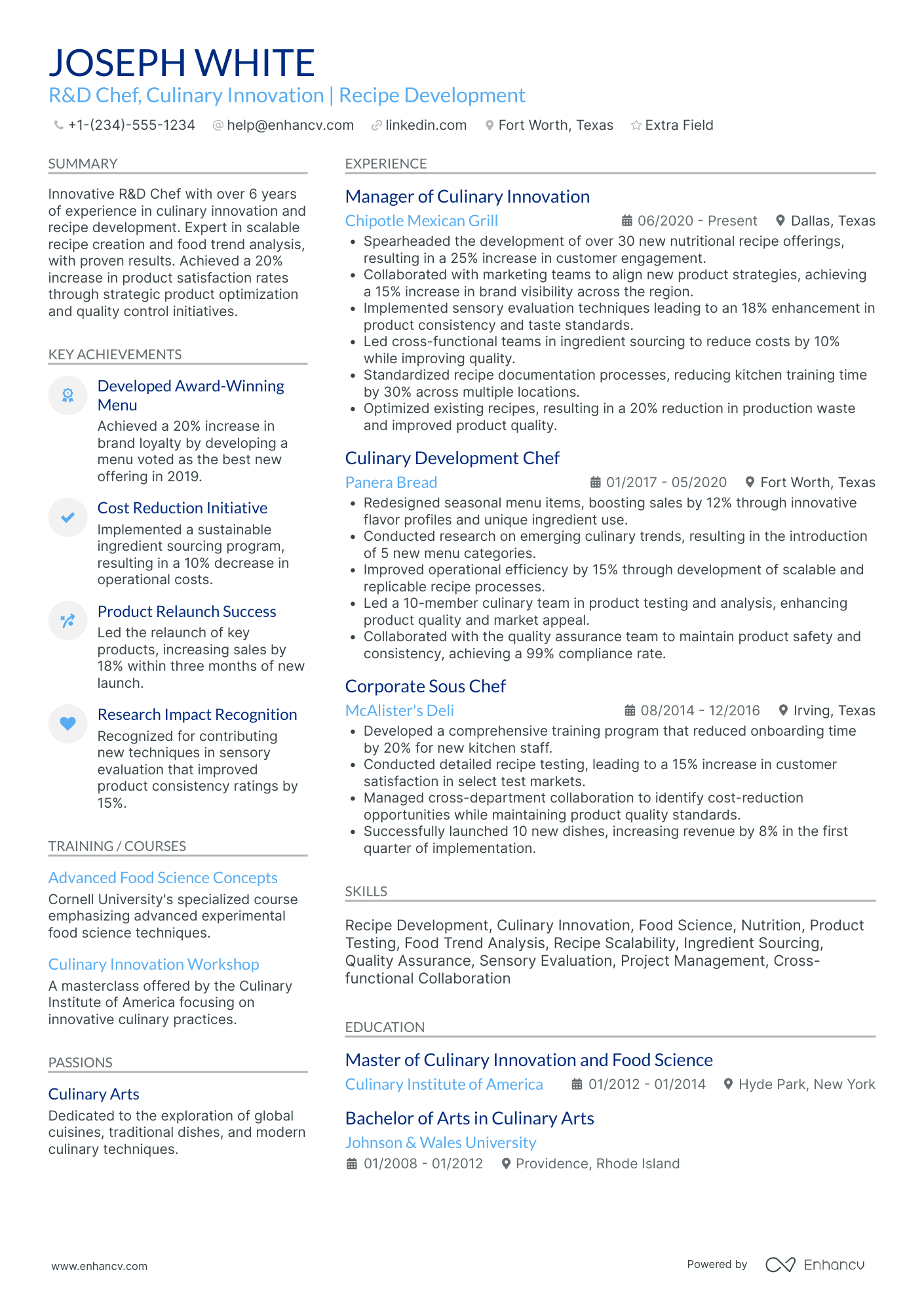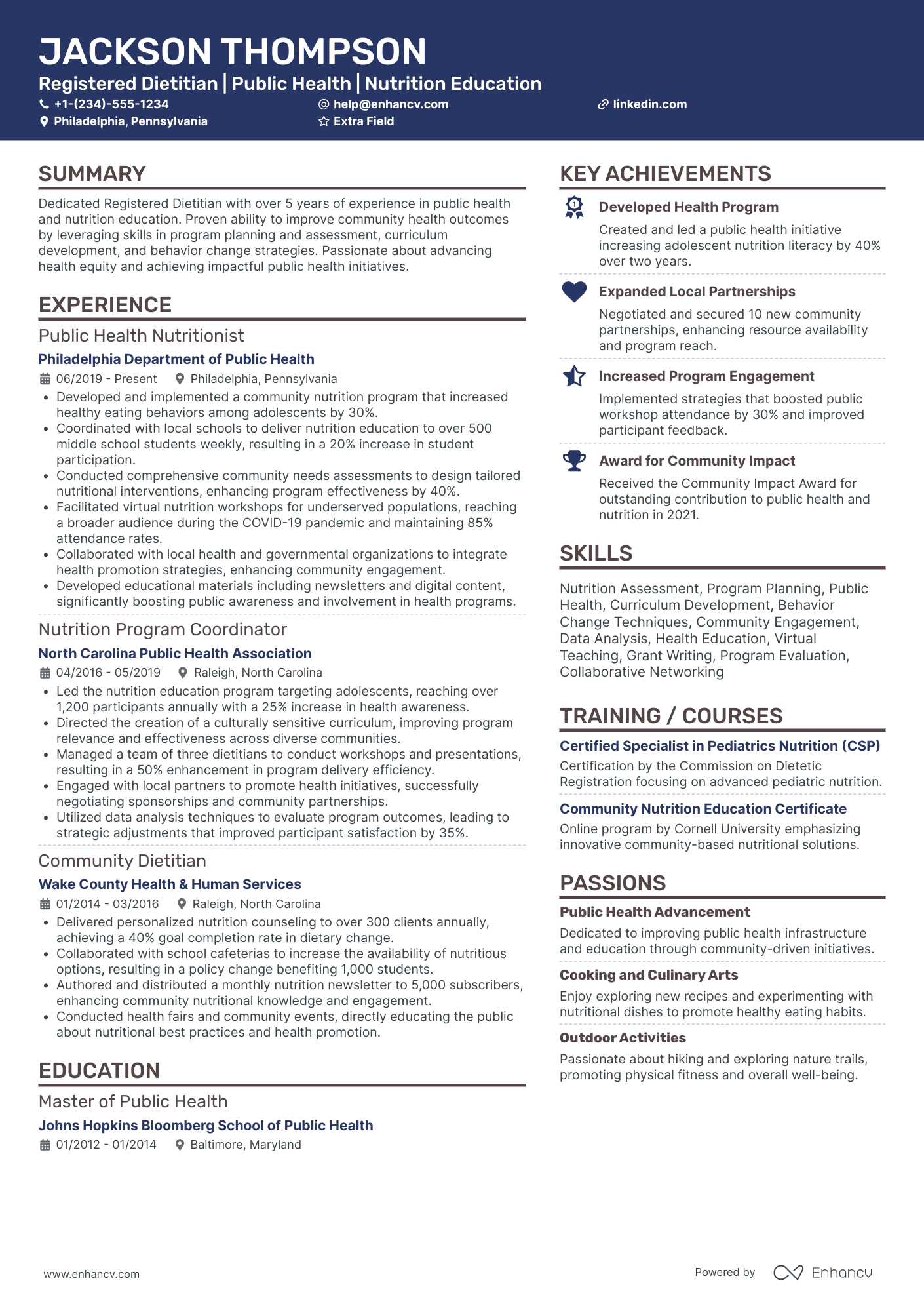Most culinary resume submissions fail because they read like job descriptions, not evidence. A culinary resume that doesn't surface results gets buried in ATS screening, rushed recruiter scans, and crowded applicant pools.
A strong resume shows what you improved, not just what you did. Knowing how to make your resume stand out means highlighting food cost reductions, covers served per shift, banquet volume, on-time service, waste cuts, audit scores, and guest satisfaction gains. Include team size, multi-station scope, and measurable quality consistency.
Key takeaways
- Quantify every experience bullet with metrics like food cost, ticket time, or waste reduction.
- Use reverse-chronological format when you have consistent, progressive kitchen employment history.
- Tailor each resume to the job posting's specific techniques, equipment, and cuisine terminology.
- Lead with certifications and skills if you lack full-time professional kitchen experience.
- Tie every listed skill to a measurable outcome in your summary or experience section.
- Stop using AI once your resume accurately reflects real experience without inflated claims.
- Build your culinary resume faster with Enhancv to keep content role-aligned and results-driven.
Job market snapshot for culinaries
We analyzed 1,262 recent culinary job ads across major US job boards. These numbers help you understand regional hotspots, employer expectations, top companies hiring at a glance.
What level of experience employers are looking for culinaries
| Years of Experience | Percentage found in job ads |
|---|---|
| 1–2 years | 5.2% (65) |
| 3–4 years | 3.2% (41) |
| 5–6 years | 1.8% (23) |
| 7–8 years | 0.2% (2) |
| 9–10 years | 0.9% (11) |
| 10+ years | 4.3% (54) |
| Not specified | 85.2% (1075) |
Culinary ads by area of specialization (industry)
| Industry (Area) | Percentage found in job ads |
|---|---|
| Finance & Banking | 54.7% (690) |
| Healthcare | 21.2% (267) |
| Education | 12.4% (157) |
| Retail & E-commerce | 7.8% (99) |
| Manufacturing | 2.1% (26) |
Top companies hiring culinaries
| Company | Percentage found in job ads |
|---|---|
| Whole Foods | 30.8% (389) |
| Aramark Corp. | 9.4% (119) |
| American Senior Communities | 4.0% (50) |
| Sodexo S A | 3.4% (43) |
| Benedictine Health System | 3.2% (41) |
| Compass Group USA Inc | 3.1% (39) |
| Omni Hotels | 1.7% (22) |
| Monarch Healthcare Management | 1.7% (21) |
| Chick-fil-A | 1.6% (20) |
| Fairview Health Services | 1.5% (19) |
Role overview stats
These tables show the most common responsibilities and employment types for culinary roles. Use them to align your resume with what employers expect and to understand how the role is structured across the market.
Day-to-day activities and top responsibilities for a culinary
| Responsibility | Percentage found in job ads |
|---|---|
| Food safety | 9.7% (123) |
| Food preparation | 8.5% (107) |
| Sanitation | 7.5% (95) |
| Microsoft office | 7.4% (94) |
| Inventory management | 5.1% (64) |
| 4.3% (54) | |
| Operations-related applications | 3.5% (44) |
| Culinary arts | 3.3% (42) |
| Mathematical skills | 3.1% (39) |
| Excel | 2.9% (37) |
| Knife skills | 2.9% (36) |
| Customer service | 2.5% (32) |
How to format a culinary resume
Recruiters hiring for culinary roles prioritize hands-on kitchen skills, food safety certifications, and the ability to work efficiently under pressure in fast-paced environments. A clean, well-structured resume format ensures these signals—along with relevant experience in menu execution, prep work, and kitchen operations—are immediately visible during a quick scan.
I have significant experience in this role—which format should I use?
Use a reverse-chronological format to showcase your progression through kitchen roles and the depth of your culinary expertise. Do:
- Highlight the scope of each position, including kitchen size, cuisine type, daily covers, and your level of ownership over stations or prep operations.
- Feature role-specific skills such as knife techniques, sauté and grill proficiency, inventory management, and familiarity with POS systems or kitchen display systems.
- Quantify your contributions with measurable outcomes tied to efficiency, waste reduction, or consistency.
I'm junior or switching into this role—what format works best?
A hybrid format works best because it lets you lead with transferable culinary skills while still providing a timeline of any relevant experience. Do:
- Place a dedicated skills section near the top of your resume, listing food safety certifications (such as ServSafe), cooking techniques, and equipment proficiency so recruiters see your qualifications immediately.
- Include culinary school projects, externships, catering side work, or volunteer kitchen experience to demonstrate hands-on ability even without a long employment history.
- Connect every skill or project to a concrete action and a clear result so hiring managers understand the impact you can deliver.
Why not use a functional resume?
A functional format strips away the timeline and context of your kitchen experience, making it harder for hiring managers to verify where and how you developed your culinary skills.
- Career changers entering the culinary field from food service, hospitality, or home-based catering with no formal kitchen titles on their resume.
- Recent culinary graduates whose experience is limited to school projects, stages, or short externships that don't fill out a traditional work history section.
- Candidates with employment gaps caused by seasonal work patterns or time away from professional kitchens.
- A functional resume is acceptable only when you have minimal or no professional kitchen experience and need to lead with certifications and project-based skills—but even then, tie every listed skill to a specific project, dish, or measurable outcome rather than listing abilities in isolation.
With your format setting the foundation for readability, the next step is filling it with the right sections to showcase your culinary qualifications.
What sections should go on a culinary resume
Recruiters expect to quickly find your kitchen roles, core culinary strengths, and the results you delivered under real service conditions. Understanding what to put on a resume for culinary roles helps you prioritize the right information.
Use this structure for maximum clarity:
- Header
- Summary
- Experience
- Skills
- Projects
- Education
- Certifications
- Optional sections: Awards, Leadership, Languages
Strong experience bullets should emphasize measurable impact—service volume, speed, quality, cost control, and consistency across shifts, stations, and teams.
Is your resume good enough?
Drop your resume here or choose a file. PDF & DOCX only. Max 2MB file size.
Once you’ve organized the essential details into a clear resume structure, the next step is learning how to write your culinary resume experience so each role supports your application.
How to write your culinary resume experience
The experience section is where you prove you can execute in a professional kitchen—through dishes you've developed, techniques you've mastered, and measurable improvements you've driven in food quality, service speed, or cost control. Hiring managers in the culinary field prioritize demonstrated impact over descriptive task lists, so every line should reflect what you delivered, not just what you did.
Each entry should include:
- Job title
- Company and location (or remote)
- Dates of employment (month and year)
Three to five concise bullet points showing what you owned, how you executed, and what outcomes you delivered:
- Ownership scope: the stations, menu sections, kitchen operations, prep teams, or food programs you were directly accountable for.
- Execution approach: the cooking techniques, food safety protocols, inventory systems, kitchen equipment, or menu development methods you used to make decisions and deliver consistent results.
- Value improved: changes to food quality, plate presentation, prep efficiency, waste reduction, health inspection readiness, or ingredient cost control relevant to your culinary role.
- Collaboration context: how you coordinated with front-of-house staff, sous chefs, vendors, event planners, or management to ensure seamless service and menu execution.
- Impact delivered: outcomes expressed through results tied to guest satisfaction, kitchen throughput, revenue contribution, or operational improvement rather than routine activity.
Experience bullet formula
A culinary experience example
✅ Right example - modern, quantified, specific.
Sous Chef
Juniper & Ash | Austin, TX
2022–Present
Two-hundred-seat, farm-to-table restaurant with a seasonal menu and a high-volume weekend service model.
- Led daily prep and service execution using HACCP logs, temperature probes, and standardized station checklists, cutting ticket times by 18% while maintaining a 4.7-star average guest rating.
- Redesigned prep workflows with batch-cooking schedules, vacuum sealing, and blast-chilling procedures, reducing food waste by 14% and improving line readiness from 82% to 96% on peak nights.
- Implemented inventory controls in Toast and MarginEdge, tightening par levels and vendor ordering cadence to lower food cost from 31.8% to 29.6% over two quarters.
- Partnered with the executive chef and front-of-house managers to run weekly menu tests and allergen reviews, decreasing remakes by 22% and improving allergy-ticket accuracy to 99%+.
- Trained and coached a team of nine line cooks using recipe cards, portion scales, and quality audits, improving new-hire ramp time by 25% and reducing call-backs for corrections by 30%.
Now that you've seen how a strong culinary experience section comes together, let's break down how to tailor each element to match the specific role you're applying for.
How to tailor your culinary resume experience
Recruiters evaluate culinary resumes through both human review and applicant tracking systems (ATS), so every line of experience needs to connect directly to the job posting. Tailoring your resume to the job description ensures the skills, techniques, and kitchen knowledge you've built match what a specific employer is looking for.
Ways to tailor your culinary experience:
- Match cooking techniques or methods listed in the job description.
- Use the exact terminology for cuisine styles the employer specifies.
- Mirror food safety standards or certifications the posting requires.
- Include experience with specific kitchen equipment or POS systems mentioned.
- Highlight volume or service style that reflects the operation's pace.
- Emphasize plating presentation or menu development if the role demands it.
- Reference compliance with health codes or HACCP protocols when relevant.
- Align your brigade or team collaboration experience with their kitchen structure.
Tailoring means aligning your real achievements with each job's specific requirements, not forcing keywords where they don't belong.
Resume tailoring examples for culinary
| Job description excerpt | Untailored | Tailored |
|---|---|---|
| Prepare and execute daily menus using seasonal, locally sourced ingredients while maintaining food cost below 30% across all stations. | Helped with daily food preparation and cooking tasks in a busy kitchen. | Designed and executed rotating seasonal menus using locally sourced produce, maintaining a 28% average food cost across five kitchen stations. |
| Lead a team of 12 line cooks in a high-volume banquet operation serving 500+ guests per event, ensuring consistent plating and adherence to HACCP standards. | Supervised kitchen staff and made sure food was prepared correctly. | Directed a brigade of 12 line cooks in banquet operations serving up to 600 guests per event, enforcing HACCP protocols and standardized plating guides that reduced presentation complaints by 40%. |
| Develop new menu items for a farm-to-table restaurant using sous vide, fermentation, and other modern techniques while accommodating common dietary restrictions (gluten-free, vegan, allergen-sensitive). | Created new dishes and updated the menu from time to time. | Developed 15 farm-to-table menu items per quarter using sous vide and fermentation techniques, with dedicated gluten-free, vegan, and allergen-sensitive options that increased guest satisfaction scores by 22%. |
Once you’ve aligned your experience with the role’s priorities, quantify your culinary achievements to show the impact of that work with clear, measurable results.
How to quantify your culinary achievements
Quantifying your achievements shows how your cooking improved service, quality, and profit. Focus on ticket times, covers served, food cost, waste, health inspection scores, guest satisfaction, and revenue from specials or catering.
Quantifying examples for culinary
| Metric | Example |
|---|---|
| Ticket time | "Cut average dinner ticket time from 18 to 12 minutes by reorganizing the sauté station and standardizing prep lists for a 120-cover service." |
| Food cost | "Reduced food cost from 32% to 28% by tightening portion controls, updating yield tests, and renegotiating produce specs with two vendors." |
| Waste reduction | "Lowered weekly food waste by 35% (about 90 pounds) using FIFO labels, daily waste logs, and a cross-utilization plan for trim and surplus." |
| Compliance score | "Earned a 98/100 health inspection score by implementing temperature logs, allergen callouts, and ServSafe-based line checks across three shifts." |
| Revenue lift | "Increased weekend special sales by $2,400 per month by testing three menu features, tracking sell-through, and training servers on pairings." |
Turn your everyday tasks into measurable, recruiter-ready resume bullets in seconds with Enhancv's Bullet Point Generator.
Once you've crafted strong bullet points for your experience section, you'll want to apply that same precision to presenting your hard and soft skills throughout your culinary resume.
How to list your hard and soft skills on a culinary resume
Your skills section shows hiring managers and an ATS (applicant tracking system) how you'll execute food prep, service, and safety standards, so list role-specific hard skills first and support them with operational soft skills—typically a stronger emphasis on hard skills for culinary roles. culinary roles require a blend of:
- Product strategy and discovery skills.
- Data, analytics, and experimentation skills.
- Delivery, execution, and go-to-market discipline.
- Soft skills.
Your skills section should be:
- Scannable (bullet-style grouping).
- Relevant to the job post.
- Backed by proof in experience bullets.
- Updated with current tools.
Place your skills section:
- Above experience if you're junior or switching careers.
- Below experience if you're mid/senior with strong achievements.
Hard skills
- HACCP plans
- ServSafe food safety
- Allergen controls (gluten, nuts)
- Knife skills and butchery
- Line cooking and station setup
- Batch cooking and prep lists
- Recipe costing and food cost %
- Inventory, FIFO rotation
- Purchasing and vendor ordering
- Kitchen display systems, POS
- Temperature logs and sanitation
- Menu development and plating
Soft skills
- Prioritize tickets under pressure
- Communicate with front of house
- Delegate prep and station tasks
- Coach cooks during service
- Maintain consistent standards
- Escalate food safety issues fast
- Adjust pacing to cover volume
- Coordinate timing across stations
- Take ownership of mise en place
- Resolve guest issues with tact
- Accept feedback and iterate quickly
- Stay organized during rushes
How to show your culinary skills in context
Skills shouldn't live only in a bulleted list on your resume. Browse examples of how other professionals present their abilities using resume skills in context.
They should be demonstrated in:
- Your summary (high-level professional identity)
- Your experience (proof through outcomes)
Here's how that looks in practice.
Summary example
Executive chef with 12 years in high-volume fine dining. Skilled in French technique, menu costing, and HACCP compliance. Reduced food waste by 30% while mentoring a 15-person brigade toward consistent Michelin-level plating standards.
- Reflects senior-level career scope
- Names specific techniques and standards
- Highlights a measurable cost-saving result
- Shows leadership and mentoring ability
Experience example
Executive Sous Chef
Bellecour Kitchen | Minneapolis, MN
March 2019–August 2024
- Redesigned seasonal tasting menus using local sourcing, increasing guest satisfaction scores by 22% over two years.
- Collaborated with pastry and sommelier teams to launch a prix fixe program that boosted weeknight revenue by 18%.
- Implemented a digital inventory system using MarketMan, cutting monthly food costs by $4,200 on average.
- Every bullet ties skills to measurable results.
- Collaboration and tools appear naturally in context.
Once you’ve tied your cooking abilities to real situations and results, the next step is writing a culinary resume with no experience, so you can present that evidence in a format employers expect.
How do I write a culinary resume with no experience
Even without full-time experience, you can demonstrate readiness. If you're building a resume without work experience, focus on showing capability through:
- Culinary school lab practicals
- ServSafe certification and training
- Volunteer kitchen or pantry shifts
- Catering for community events
- Pop-up dinners or meal prep
- Food costed recipe development
- Restaurant stage or shadow shift
- Culinary competition participation
Focus on:
- Food safety and sanitation compliance
- Knife skills and station readiness
- Prep volume, speed, and accuracy
- Recipe execution and consistency
Resume format tip for entry-level culinary
Use a skills-based resume format because it highlights culinary skills, training, and projects when your work history is limited. Do:
- Put certifications near the top.
- List kitchen tools you've used.
- Quantify prep volume and timing.
- Add projects with measurable outcomes.
- Tailor keywords to each job.
- Developed and costed five lunch recipes, used scale and thermometer for testing, and reduced per-portion cost by 12% while meeting food safety standards.
Even without professional kitchen experience, your educational background can demonstrate relevant training and commitment to the culinary field, making it essential to present it effectively on your resume.
How to list your education on a culinary resume
Your education section helps hiring teams confirm you have foundational culinary knowledge. It validates formal training in techniques, food safety, and kitchen management essential for the role.
Include:
- Degree name
- Institution
- Location
- Graduation year
- Relevant coursework (for juniors or entry-level candidates)
- Honors & GPA (if 3.5 or higher)
Skip month and day details—list the graduation year only.
Here's a strong culinary education entry you can adapt:
Example education entry
Associate of Applied Science in Culinary Arts
The Culinary Institute of America, Hyde Park, NY
Graduated 2022
GPA: 3.7/4.0
- Relevant coursework: Advanced Pastry Techniques, Menu Development, Food Safety and Sanitation, Farm-to-Table Cuisine
- Honors: Dean's List, four consecutive semesters
How to list your certifications on a culinary resume
Certifications on your resume show you keep learning, use culinary tools safely and correctly, and stay aligned with industry standards. They also help employers trust your readiness for fast-paced kitchen work.
Include:
- Certificate name
- Issuing organization
- Year
- Optional: credential ID or URL
- Place certifications below education when your degree is recent and more relevant than older credentials.
- Place certifications above education when they are recent and directly match the culinary role you want.
Best certifications for your culinary resume
ServSafe Food Handler ServSafe Manager HACCP Certification Allergen Awareness Certification Certified Sous Chef (CSC) Certified Executive Chef (CEC) WSET Level 1 Award in Wines
Once you’ve positioned your credentials where they’ll get noticed, shift to your culinary resume summary so you can tie those qualifications into a clear, high-impact introduction.
How to write your culinary resume summary
Your resume summary is the first thing a recruiter reads. A strong opening signals you understand the kitchen and can deliver results.
Keep it to three to four lines, with:
- Your current title and total years of culinary experience.
- The type of cuisine, dining format, or food service environment you know best.
- Core skills such as menu development, food costing, inventory management, or plating techniques.
- One or two measurable wins, like reducing food waste by a percentage or increasing covers per service.
- Soft skills tied to real outcomes, such as training junior cooks or improving team retention.
PRO TIP
At an entry or mid-level, lead with your strongest technical skills, relevant certifications, and any early wins that show initiative. Avoid vague phrases like "passionate food lover" or "team player." Instead, connect every detail to something you actually did in a kitchen. Specifics always beat enthusiasm.
Example summary for a culinary
Line cook with two years of experience in high-volume French bistro kitchens. Skilled in garde manger, sauce preparation, and station setup. Reduced daily prep waste by 15% through better portioning. Trained three new hires during peak season.
Optimize your resume summary and objective for ATS
Drop your resume here or choose a file.
PDF & DOCX only. Max 2MB file size.
Now that your summary captures your culinary expertise at a glance, let's make sure your header presents the essential contact details recruiters need to reach you.
What to include in a culinary resume header
A resume header lists your key contact details and role focus, helping culinary recruiters spot you fast, trust your profile, and screen you efficiently.
Essential resume header elements
- Full name
- Tailored job title and headline
- Location
- Phone number
- Professional email
- GitHub link
- Portfolio link
A LinkedIn link helps recruiters verify your experience quickly and supports screening.
Don't include a photo on a culinary resume unless the role is explicitly front-facing or appearance-dependent.
Match your header title to the job posting and keep every link current, readable, and consistent with your culinary resume.
Culinary resume header
Jordan Rivera
Culinary Line Cook | High-volume kitchen, prep, and station coverage
Chicago, IL
(312) 555-78XX
jordan.rivera@enhancv.com
github.com/jordanrivera
yourwebsite.com
linkedin.com/in/jordanrivera
Once your contact details and key identifiers are in place at the top, add additional sections for culinary resumes to provide supporting details that strengthen the rest of your application.
Additional sections for culinary resumes
Beyond core experience and education, extra sections help you stand out when competing against equally skilled chefs and kitchen professionals.
- Languages
- Certifications and food safety credentials
- Culinary competitions and awards
- Volunteer cooking and community kitchen work
- Professional memberships and culinary associations
- Hobbies and interests
- Publications and recipe features
Once you've rounded out your resume with the right supplementary sections, it's worth pairing it with a cover letter to strengthen your overall application.
Do culinary resumes need a cover letter
A cover letter is not required for a culinary, but it helps when roles are competitive or hiring managers expect one. It can make a difference when your resume needs context or your fit is not obvious.
Use a cover letter to add context your resume can't:
- Explain fit for the role and team: match your station strengths, service style, and pace to how the kitchen runs.
- Highlight one or two outcomes: name a menu item, process change, or prep system you improved, and include a clear result.
- Show you understand the product and users: reference the restaurant concept, guest expectations, and business needs like food cost, consistency, and speed.
- Address transitions or non-obvious experience: connect catering, banquets, or home kitchen work to the role's demands and standards.
Drop your resume here or choose a file.
PDF & DOCX only. Max 2MB file size.
Whether you include a cover letter depends on the role and employer expectations, and using AI to improve your culinary resume helps you tailor your content faster and more consistently to match those requirements.
Using AI to improve your culinary resume
AI can sharpen your resume's clarity, structure, and impact. It helps tighten language and highlight relevant strengths. But overuse strips authenticity fast. Once your content is clear and role-aligned, step away from AI entirely. For specific guidance, explore these ChatGPT resume writing prompts to get started.
Here are 10 practical prompts to strengthen specific sections of your culinary resume:
- Sharpen your summary: "Rewrite my culinary resume summary to highlight my strongest skills and years of experience in under four sentences."
- Quantify your impact: "Add measurable results to these culinary experience bullets, focusing on efficiency, cost savings, or output volume."
- Tighten bullet points: "Shorten each culinary experience bullet to one concise line starting with a strong action verb."
- Align with postings: "Compare my culinary resume skills section to this job description and suggest missing relevant keywords."
- Strengthen skills lists: "Organize my culinary skills into categories like techniques, cuisines, equipment, and food safety certifications."
- Improve project descriptions: "Rewrite this culinary project entry to emphasize my specific role, the outcome, and the scale."
- Clarify education entries: "Reformat my culinary education section to clearly show degrees, institutions, graduation dates, and honors."
- Highlight certifications: "List my culinary certifications in order of relevance for a fine dining sous chef position."
- Remove weak language: "Identify and replace vague words like 'helped' or 'assisted' in my culinary experience section."
- Fix inconsistent formatting: "Standardize the tense, punctuation, and structure across all culinary resume sections for consistency."
Stop using AI once your resume sounds accurate, specific, and aligned with real experience. AI should never invent experience or inflate claims—if it didn't happen, it doesn't belong here.
Conclusion
A strong culinary resume ties measurable outcomes to role-specific skills. It shows results like faster ticket times, lower food waste, higher guest scores, and steady cost control. Keep the structure clear, with focused sections and consistent formatting.
Hiring teams want proof you can perform today and adapt as kitchens change. When your culinary resume stays specific, organized, and results-driven, it reads fast and earns interviews. Keep it direct, and let your work speak for itself.
